World´s leading scientists hang on to global warming story, despite declining rate of temperature increase
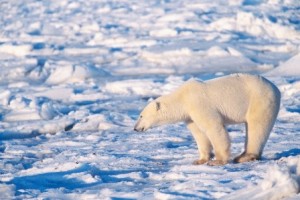
Climate change due to global warming continues to be a major threat for the world, according to the recently released IPCC report, the leading source for the assessment of climate change.
Dramatic implications[1]
Extreme weather conditions, rising temperatures, rising sea levels, and melting of ice in glaciers are dramatic implications of the horror scenario outlined by the world´s leading climate scientists, unless the world is ready for drastic changes of energy consumption and energy sources. But even then the effects can only be mitigated.
The ice cap on the Artic sea and Greenland is melting, causing a rise in sea levels. This is not only a problem for polar bears whose habitat is seriously threatened. The repercussions of rising sea levels will threaten coastal cities all over the world.

There is a one in six chance of a the coastline sea level rise of at least 3 meters (ten feet) by the end oft the century, with escalating storm surges and tides. The picture shows how the coast of New York City and Long Beach area could be affected (screenshot is taken from Climate Central’s interactive map[3]).
The IPCC report
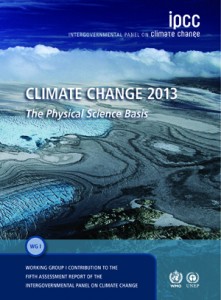 The IPCC (Intergovernmental Panel on Climate Change), is the leading international body for the assessment of global climate change. It was originally established in 1988 by the United Nations Environment Programme (UNEP) and the World Meteorological Organization (WMO) to provide the world with a scientific view on the current state of knowledge in climate change and its potential environmental and socio-economic impacts[4]. The Fifth Assessment Report of Working Group I is now released.
The IPCC (Intergovernmental Panel on Climate Change), is the leading international body for the assessment of global climate change. It was originally established in 1988 by the United Nations Environment Programme (UNEP) and the World Meteorological Organization (WMO) to provide the world with a scientific view on the current state of knowledge in climate change and its potential environmental and socio-economic impacts[4]. The Fifth Assessment Report of Working Group I is now released.
Download the full report[5] and Summary for Policy Makers [6]
Over 800 scientists from all over the world, contributed to the IPCC reports, in total more than 9,000 peer-reviewed papers. It represents a summary representing the current state of climate science.
The report leaves no doubt that „warming of the climate system is unequivocal, and since the 1950s, many of the observed changes are unprecedented ……. The atmosphere and ocean have warmed, the amounts of snow and ice have diminished, sea level has risen, and the concentration of greenhouse gases have increased.“
- scientists underline, with greater certainty than ever, the role of human activities in rising temperatures. It is now considered even more than 95% certain that human influence, primarily from burning of fossil fuels and the release of CO2 greenhouse gas, has been the dominant cause of the observed warming since the mid-20th century. Natural internal variability and natural external influencers, e.g. from solar activity, have contributed virtually nothing to the warming since 1950.
- global temperatures rose by 0.78-0.85 °C, depending on the method of assessment, between 1880 and 2012, and are projected to rise further, by another 0.3 to 0.7 °C for 2016-2035, and, depending on model assumptions, in the worst case scenario of very high greenhouse emissions, even up to 4.8°C by the end of this century.
- ocean warming dominates the increase in energy stored in the climate system, accounting for more than 90%, by a rate of 0.11 °C per decade since 1970, and is expected to increase further, while more heat is penetrated to deep ocean and is expected to affect global water circulation
- melting of ice in glaciers, in Antarctica and Greenland, have continued to increase, and snow cover have decrease in extent. The global glacier volume is expected to decrease in the range of 15%-85% by the end of the century, depending on model assumptions, and a near complete loss of the Greenland ice sheet in the event of sustained global warming
- sea levels rose by 0.19 m between 1901-2010, and are expected to rise a further 26-82 cm, by the end of the century.
- atmospheric concentrations of greenhouse gases – CO2, methane and nitrous oxide – have increased to levels unprecedented in the last 800.000 years, CO2 increased by 40% since pre-industrial time, to nearly 400 ppm of atmospheric CO2 concentration
- CO2 uptake in the oceans has acidified the pH value of sea water from 8.12 to 8.07 between 1990-2010
- Changes in the global weather cycles are not uniform. The contrast in precipitation between wet and dry regions and between wet and dry seasons is expected to increase
The spreads in the forecasts dramatically depend on the model assumptions, best case and worst case, largely linked with assumptions of greenhouse gas emissions, mainly CO2. The respective scenarios included a mitigation scenario (best case), two stabilisation scenarios and one scenario with very high greenhouse gas emissions (worst case).
The report states “cumulative emissions of CO2 largely determine global mean surface warming by the late 21st century and beyond..….most aspects of climate change will persist for many centuries even if emissions of CO2 are stopped”
Slow down of global warming in recent 15 years?
Considering the conclusions of the IPCC report, it is at first glance astonishing that since 1998, in the recent 15 years, the rate of warming has declined. Prior to the release of the report, there was an ongoing debate why the rate of warming, or, to be more precise, the temperature increase in the atmosphere and upper ocean water, has declined.
BBC News [7] and CBS News[8] , among others, reported on the story.
Climate change critics say the models may be wrong, but the majority of leading scientists hold on to their conclusion of ongoing climate change and global warming. The IPCC panel states that it is 95% certain that the human influence on climate caused more than half the observed increase in global average surface temperatures from 1951-2010.
 “Many governments have demanded a clear explanation of what are the possible causes of this factor”, says Prof Arthur Petersen Netherlands Environmental Assessment Agency.
“Many governments have demanded a clear explanation of what are the possible causes of this factor”, says Prof Arthur Petersen Netherlands Environmental Assessment Agency.
There are a several possible explanations why data might indicate that global warming seems to be slowing.
First of all, the comparative data starting in 1998 as reference point, which was an unusually warm year, when the weather phenomenon El Nino caused extreme temperatures. When scientists draw a trend line through climate data from 1998 to 2013, the increase is barely significant. But if, instead, the data set would starts at a different year, say 1970, and track the development through to 2013, the global rise in temperature would be far more significant.
Secondly, deep ocean temperatures have risen and might have accumulated the uptake in energy. A recent study by National Center for Atmospheric Research found dramatic recent warming in the deeper oceans[9].
The data suggest that global warming in the recent 15 years is declining in terms of temperature in the atmosphere and in upper ocean levels, however, it does not mean that global warming has stopped. The energy could have been circulated differently, to deep oceans.
Also, the scientific models may possibly not be not accurate enough, given the enormous complexity of a climate system.
Is it too late to save the world?
Al Gore, former vice president under Bill Clinton, in the film “An Inconvenient Truth“ , gave a clear message: Humans are causing global warming, and the effects are devastating. But not everybody appreciated this message[10]
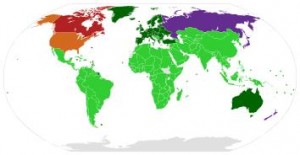
The map shows the countries who have committed to the Kyoto protocol[11] , an international treaty that sets binding obligations on industrialised countries to reduce emissions of greenhouse gases. The US, the world´s largest energy consumer did not commit to binding targets for reduction of greenhouse gases.
As mentioned above, there are huge differences in the forecasted models of leading scientists, largely depending on assumptions for future greenhouse gas emissions.
It remains to be seen whether the world will be able to manage a best case (mitigation) scenario, with reduced CO2 emissions based on renewable energy sources, at least a stabilisation scenario, or whether we will face a worst case scenario with uncontrolled burning of fossil fuels and very high greenhouse gas emissions, leading to an epic disaster. Amidst weak economies and lack of political consensus, as well as high growth rates in emerging markets, the challenges are huge even to stabilise the system.
After the climate meeting in Doha, Qatar, in 2012, it became clear that there is still no global consensus among leading nations in the world what needs to be done to address the issue of climate change[12].
This leads us to the point how valid are climate change deniers arguments. We will look into this in future articles.
http://news.discovery.com/earth/oceans/deep-oceans-warming-at-alarming-rate-130711.htm

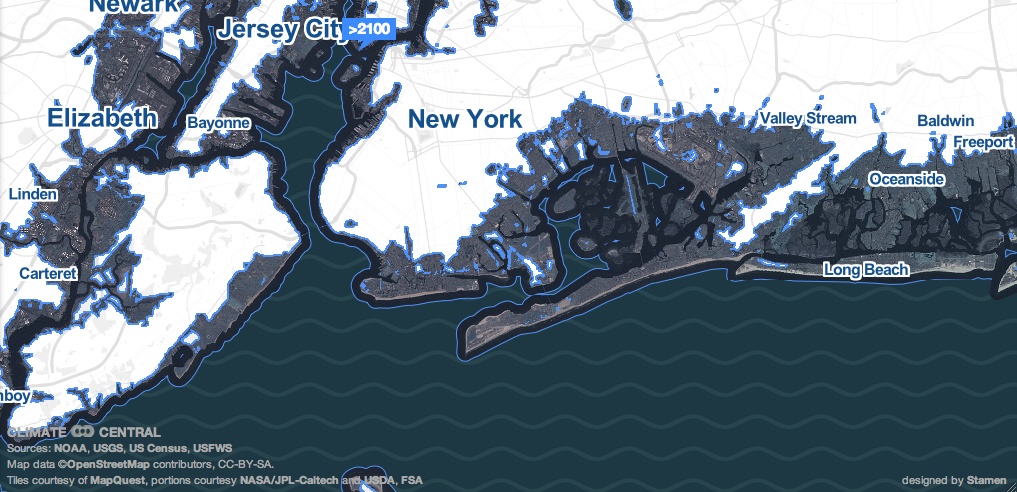
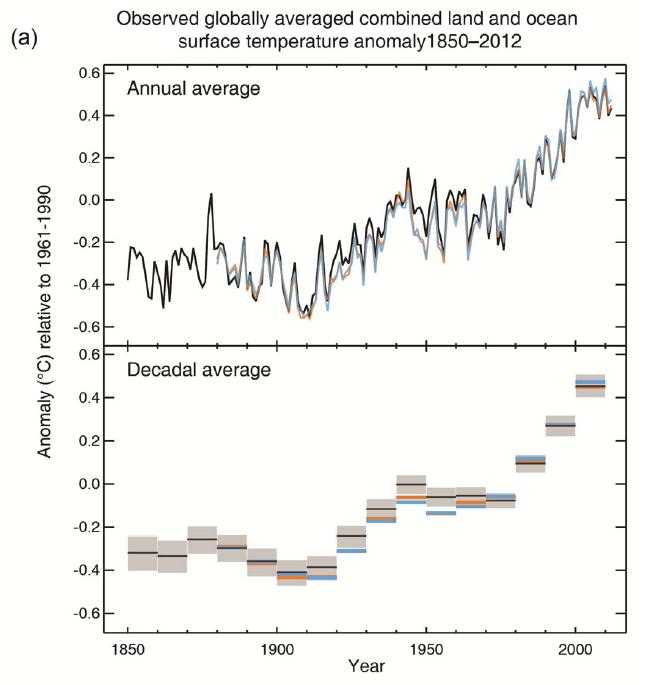

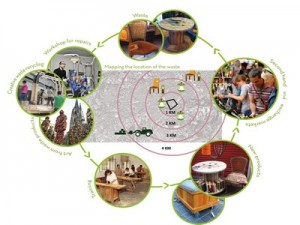
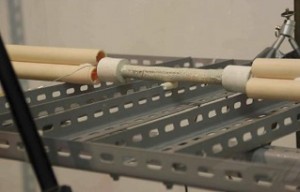
Fighting the climate change will need to things to be successful:
1. Understanding amongst the nations that a change in behavior is desperatly needed.
2. New technologies that help those willing to change their behavior.
In my view, number two gives an excellent basis for innovative businesses to grow. This means fighting the global warming is not only of essence for the planet, it is also economicly benefical. What else can you want – saving the planet AND earning money!
regards
Jonas from http:///www.innovators.cc